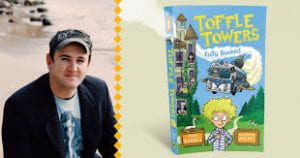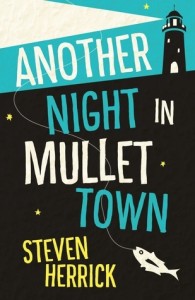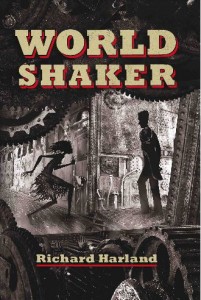 Late in the day of our BookWeek celebrations, there was anticipation as years 5 and 6 waited to hear from this year’s invited author. Anticipation too, for the author – for Tim Harris had taught at this school for 10 years before embarking on his writing career.
Late in the day of our BookWeek celebrations, there was anticipation as years 5 and 6 waited to hear from this year’s invited author. Anticipation too, for the author – for Tim Harris had taught at this school for 10 years before embarking on his writing career.
No-one was disappointed – students, staff and author all delighted in the events of the day – especially the stories and ideas Tim presented, at different levels, to our Junior School students. He captivated the audience, inviting their response; he also told true tales, sometimes revealing real school or family connections.
Lots of stories and ideas were shared. Tim skilfully combined the two to outline some of the tricks of the (writing) trade. This included when he shared tales of situations which inspired an idea (the mosquito that caught fire – his son’s perception of a laser pointer; classroom situations – escalated by thinking ‘what if’). Our students were totoally enthralled and engaged.
Other author hints included:
- writers look for ideas & join them together
- take ideas from a photo
- use things from strong memories
- then use those memories & EXAGGERATE!
- trust your editor
- read, read, read.
Tim Harris now has a great list of titles which are selling globally. His new series, Toffle Towers, is also bound to be a new success.
However, Tim reflects that elements of success to him also includes:
- returning to a school he loved, but in a different role
- hearing from an ex-student, now reading his books to her students
- connecting to young readers as he performs his works
- recognising the authors he began to introduce to his students
- engaging with the wider community of fellow authors, booksellers, publishers, and of course, teacher librarians and their students – promoting and loving his work.
To future writers, Tim says:
“Ideas are everywhere. Consider the ‘what if’.”
To readers, Tim says:
“Toffle Towers: Fully Booked is the first in the new series – more to come!”.
And Tim has even hinted that he may yet have some non-fiction tales to tell – stayed tuned, stay alert for more!
Till then, you can find Tim introducing his new characters on social media, and investigate reviews of his current works at: https://www.betterreading.com.au/kids-ya/fawlty-towers-meets-treehouse-extract-of-toffle-towers-fully-booked/
Tim Harris currently writes for a slightly younger age group than YA (young adult) – his inspiration follows on from reading Paul Jennings stories to his classes. Which writers currently inspire you? Are there others you have read in your younger years which you remember fondly?

